

| Region rejsu : Rejsy transatlantyckie, Kuba / Dominikana |
| Firma : Norwegian Cruise Lines |
| Statek : Norwegian Sky |
| Data rozpoczęcia : pon. 06 kwi 2026 |
| Data zakończenia : niedz. 19 kwi 2026 |
| Liczba nocy : 13 nocy |
| Dzień | Data | Port | Wypłynięcie | Odpłynięcie |
|---|---|---|---|---|
| 1 | 6.04 pon. | Punta Cana / Dominikana | 17:30 | |
| 2 | 7.04 wt. | San Juan / Portoryko | 07:00 | 15:00 |
| 3 | 8.04 śr. | Dzień na morzu / Morze | ||
| 4 | 9.04 czw. | Dzień na morzu / Morze | ||
| 5 | 10.04 pt. | Dzień na morzu / Morze | ||
| 6 | 11.04 sob. | Dzień na morzu / Morze | ||
| 7 | 12.04 niedz. | Dzień na morzu / Morze | ||
| 8 | 13.04 pon. | Ponta Delgada, San Miguel / Portugalia | 10:00 | 15:00 |
| 9 | 14.04 wt. | Dzień na morzu / Morze | ||
| 10 | 15.04 śr. | Lizbona / Portugalia | 11:00 | 18:00 |
| 11 | 16.04 czw. | Vigo / Hiszpania | 10:00 | 18:00 |
| 12 | 17.04 pt. | La Coruna / Hiszpania | 08:00 | 17:00 |
| 13 | 18.04 sob. | Dzień na morzu / Morze | ||
| 14 | 19.04 niedz. | Paryż / Francja | 05:30 |
Payment Terms
To confirm your booking, a minimum deposit of 20% of the trip cost is required.
Final payment must be made no later than 90 days before the cruise departure.
The deposit or full payment must be made immediately after the booking is created, according to the payment terms. Payment can be made by invoice or using the following credit cards: American Express, MasterCard, and Visa. When paying by card, we require the following details: card number, cardholder's name, card expiration date, cardholder's postcode, and the three-digit security code on the back of the card.
Cruise Cancellation Policy
Period Before Departure Cancellation Fee
More than 29 days 20%
28 - 15 days 50%
14 - 8 days 75%
7 days or less+ 95%
The following cancellation fees will apply for confirmed Cruisetours packages:
Period Before Departure Cancellation Fee
More than 29 days 20%
28 days less+ 95%
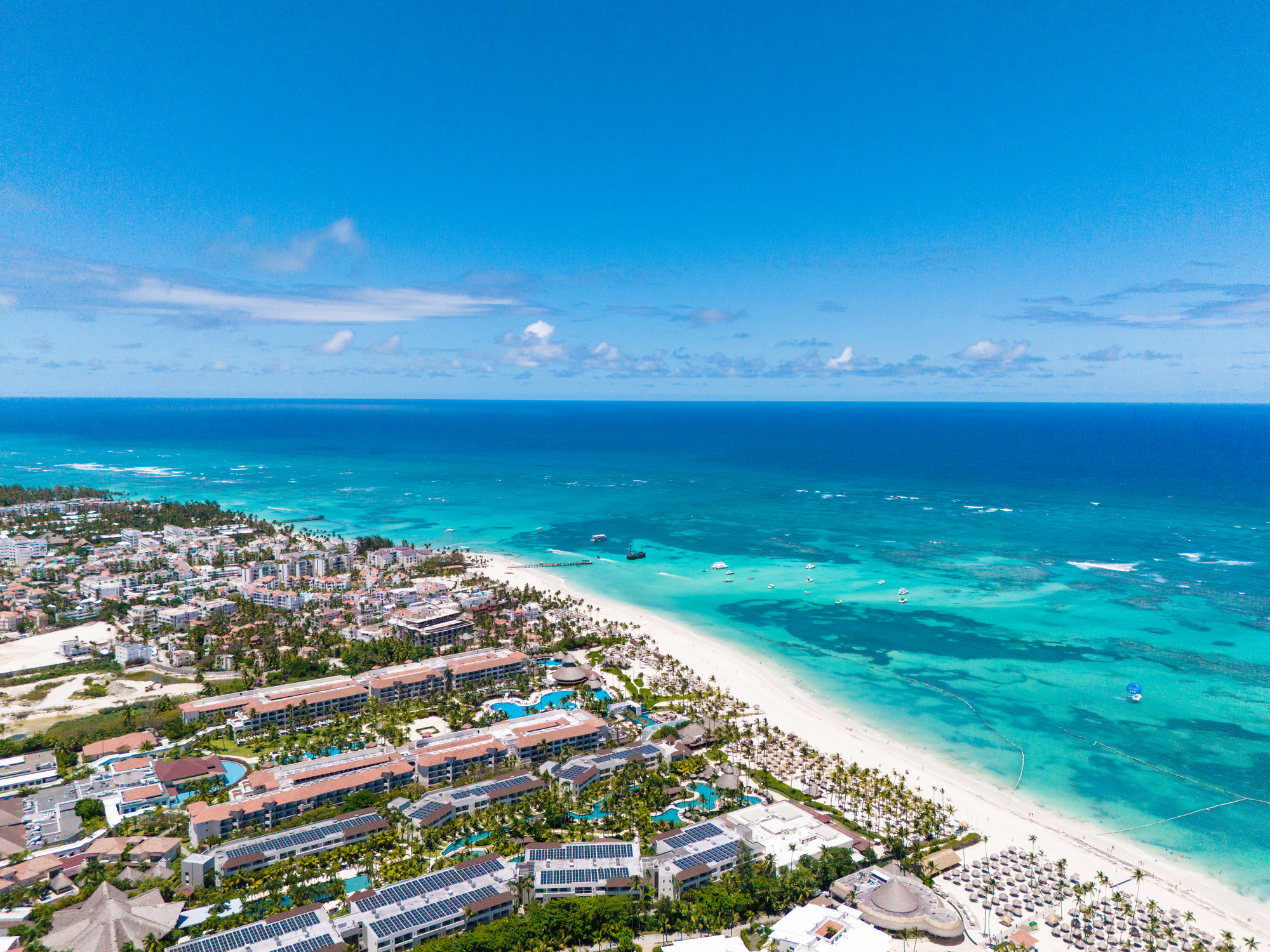
Punta Cana to jeden z najpopularniejszych kurortów na Karaibach, położony na wschodnim krańcu Republiki Dominikany, gdzie Ocean Atlantycki łączy się z Morzem Karaibskim. Region ten słynie z niekończących się plaż z białym piaskiem oraz palmowych gajów rozciągających się wzdłuż wybrzeża. Dzięki całorocznemu ciepłemu klimatowi i rozbudowanej infrastrukturze hoteli all-inclusive, Punta Cana jest ulubionym celem podróży par, rodzin i osób poszukujących tropikalnego luksusu.
Oprócz plaż Punta Cana oferuje wiele atrakcji: nurkowanie przy rafach koralowych, spływy kajakowe, zjazdy na linie przez tropikalne lasy oraz wycieczki do pobliskiego parku ekologicznego Indigenous Eyes z krystalicznie czystymi lagunami. Międzynarodowe lotnisko znajduje się w pobliżu, co zapewnia łatwy dojazd. Punta Cana to doskonałe miejsce na połączenie relaksu i przygody w otoczeniu natury i dominikańskiej gościnności.
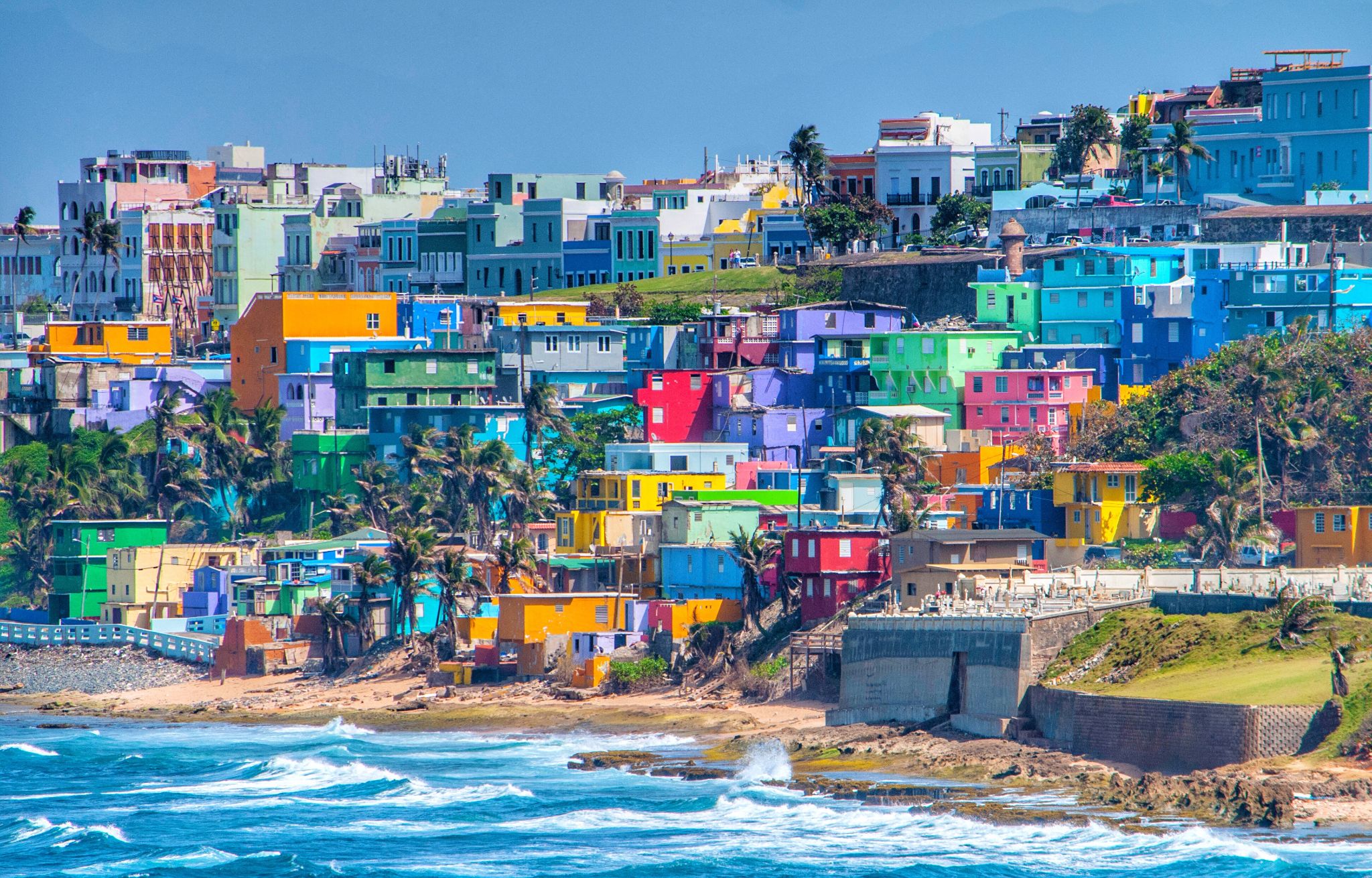
San Juan
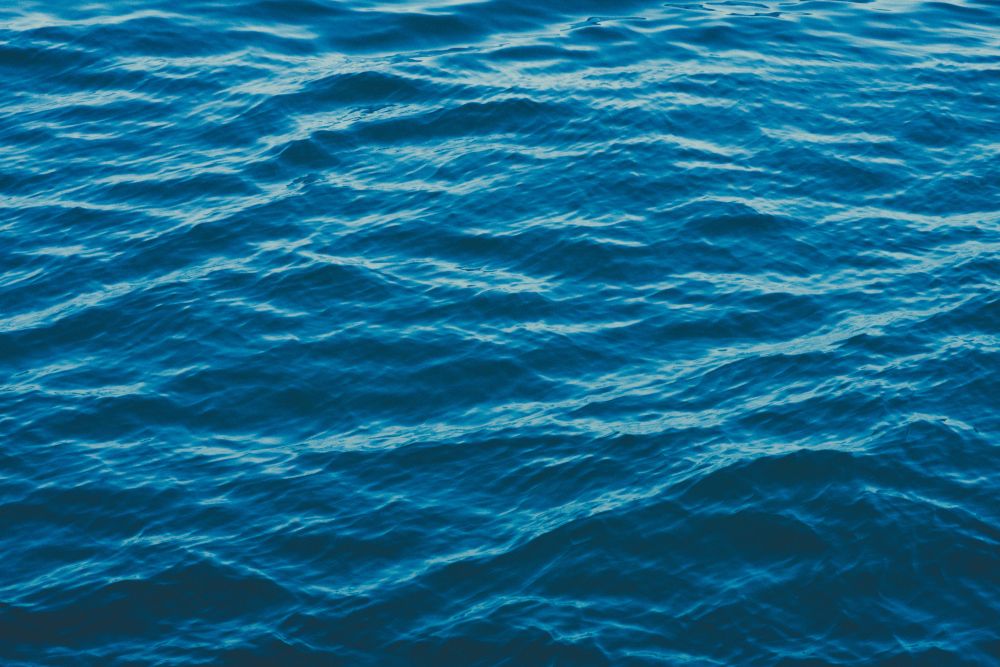




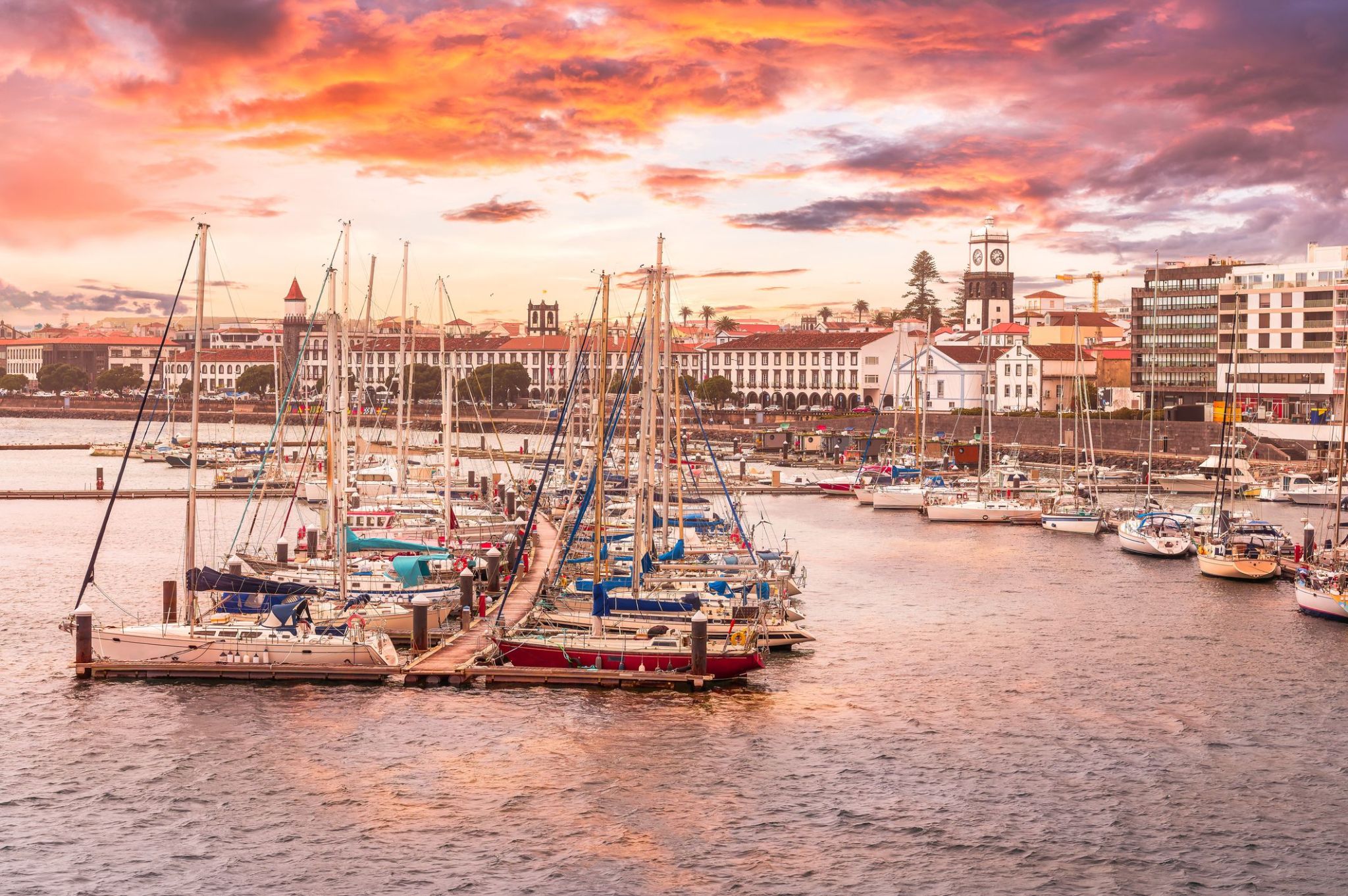
W otoczeniu wulkanicznych krajobrazów i zielonych wzgórz Ponta Delgada wita gości wyjątkowym rytmem, gdzie szum oceanu miesza się z aromatem świeżo parzonej kawy. Tutaj, w stolicy wyspy São Miguel, można spacerować brukowanymi uliczkami z czarno-białymi portugalskimi wzorami, zajrzeć do przytulnych kawiarni na lokalne wypieki i obserwować, jak zachód słońca maluje Atlantyk w złoto-różowe odcienie.
Dla miłośników natury Ponta Delgada otwiera drogę do gorących źródeł Furnas, punktów widokowych na jeziora Sete Cidades oraz rejsów na obserwację wielorybów, które wyruszają bezpośrednio z portu miejskiego. To miejsce, w którym wakacje na Azorach wypełnione są chwilami prawdziwego spokoju, świeżością oceanicznej bryzy i poczuciem, że czas zwalnia, pozwalając dostrzec piękno każdego dnia.

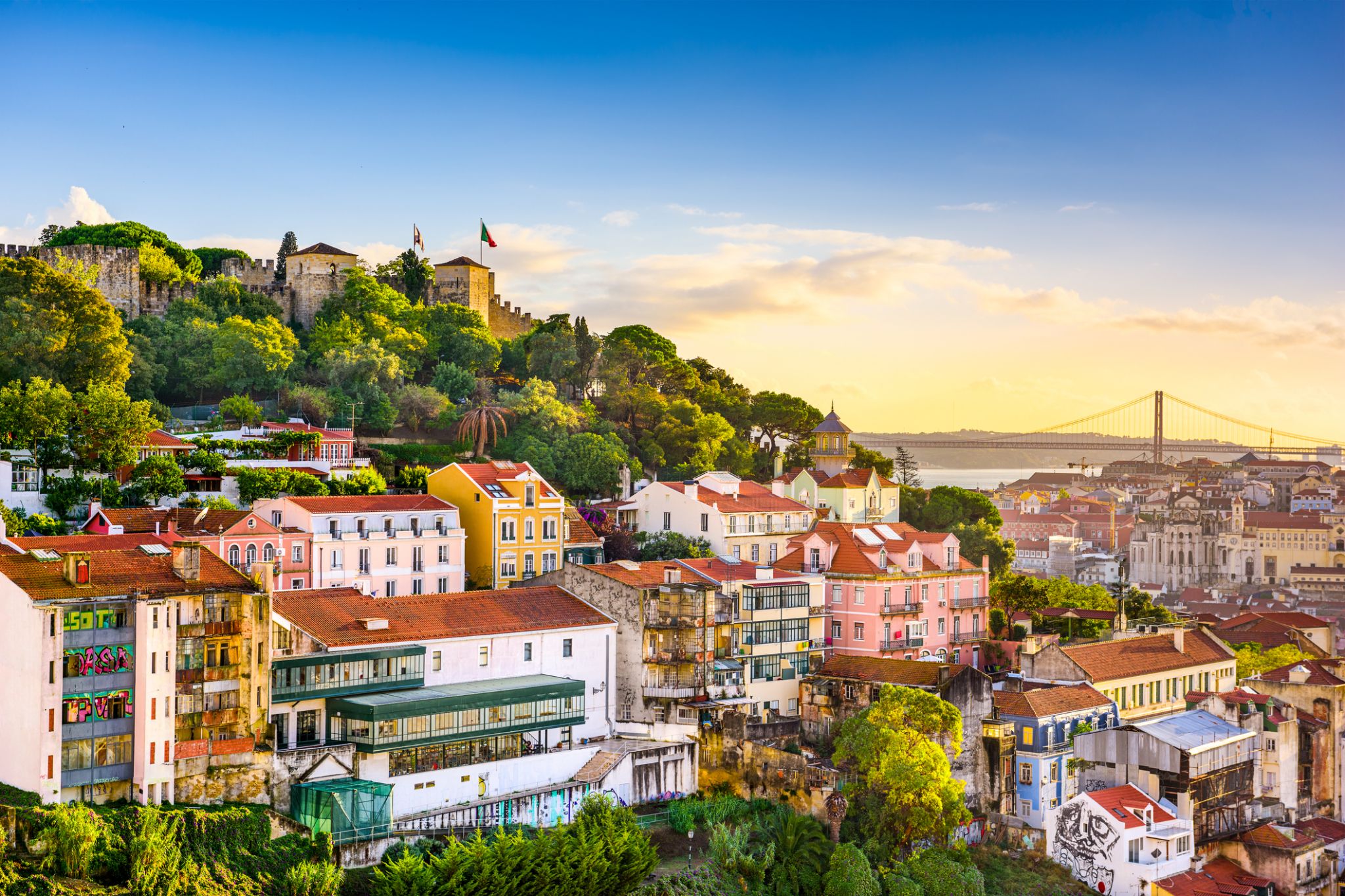
Lizbona jest stolicą i największym miastem Portugalii, z szacowaną populacją 505 526 mieszkańców w granicach administracyjnych na obszarze 100,05 km². Jej obszar miejski rozciąga się poza granice administracyjne miasta i liczy około 2,8 miliona mieszkańców, co czyni go jedenastym najbardziej zaludnionym obszarem miejskim w Unii Europejskiej. Około 3 milionów ludzi mieszka w aglomeracji lizbońskiej (która stanowi około 27% populacji kraju). Jest to najbardziej wysunięta na zachód stolica kontynentalnej Europy i jedyna położona nad Oceanem Atlantyckim. Lizbona leży na zachodnim Półwyspie Iberyjskim nad Oceanem Atlantyckim i rzeką Tag. Najbardziej wysunięte na zachód obszary jej aglomeracji tworzą najbardziej wysunięty na zachód punkt kontynentalnej Europy, znany jako Cabo da Roca, położony w górach Sintra.
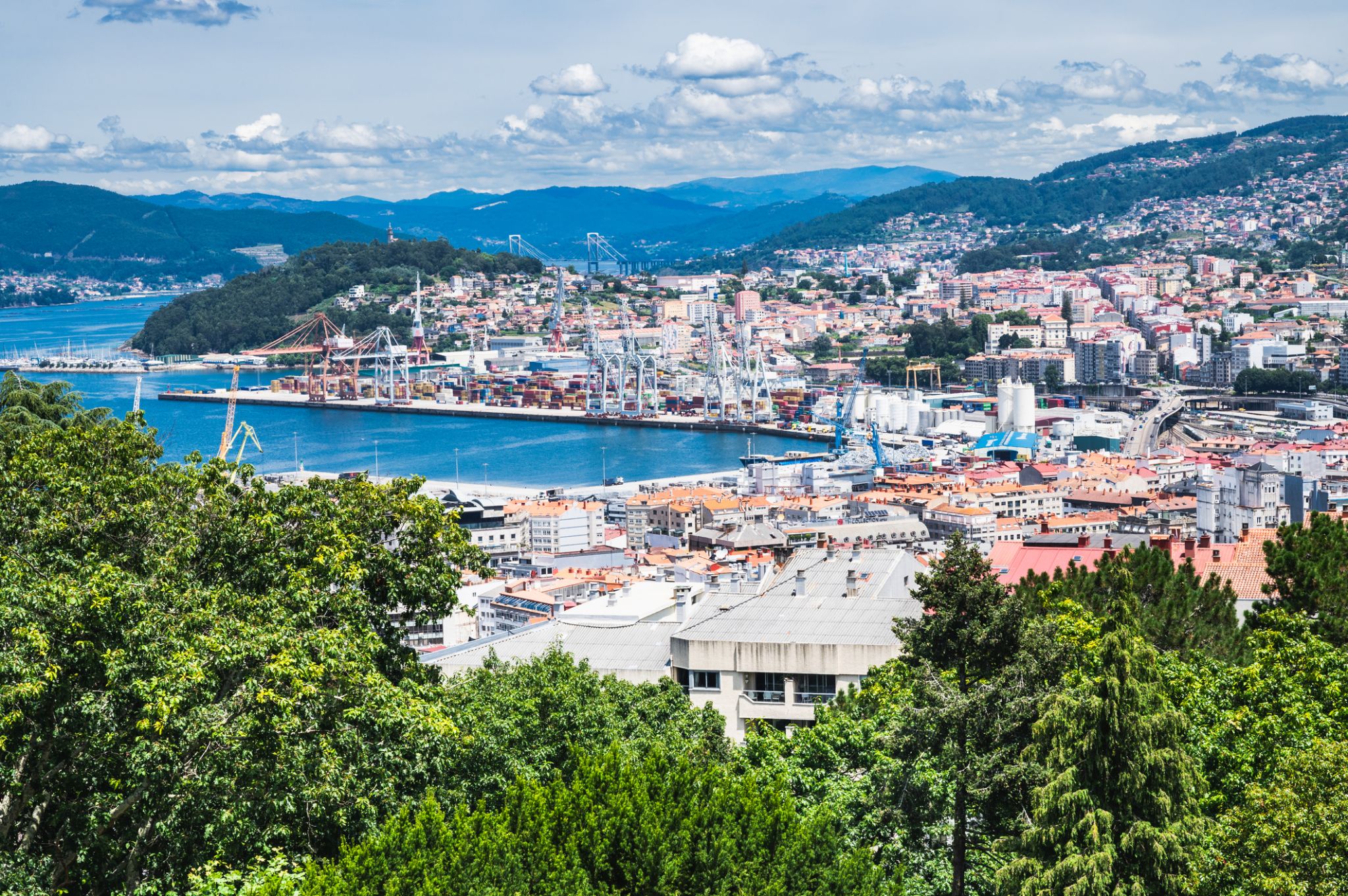
Vigo is a city and municipality adjoining the Atlantic Ocean in the province of Pontevedra in Galicia, northwest Spain. It is the capital of the comarca of Vigo and Vigo metropolitan area.
Vigo is the most populous municipality of Galicia, the 14th in Spain, and the most populous Spanish municipality that is not the capital of a province. It has an area of 109.06 km2 (42.11 sq mi) and had a population of 292,817 in 2016.
The city is located in the southwest of Galicia, in the southern part of Vigo Ria, one of Europe's rainiest areas. In the northeast, it borders the municipality of Redondela; in the east, Mos; in the south, O Porriño and Gondomar; and in the southwest, Nigrán. On the other side of its bay are the municipalities of Cangas and Moaña. They are all part of the southern Galician region called Rías Baixas. Vigo is just north of the border with Portugal; its nearest larger city is Porto, Portugal's second-largest city.
Vigo and its metropolitan area are one of the region's primary economic agents.
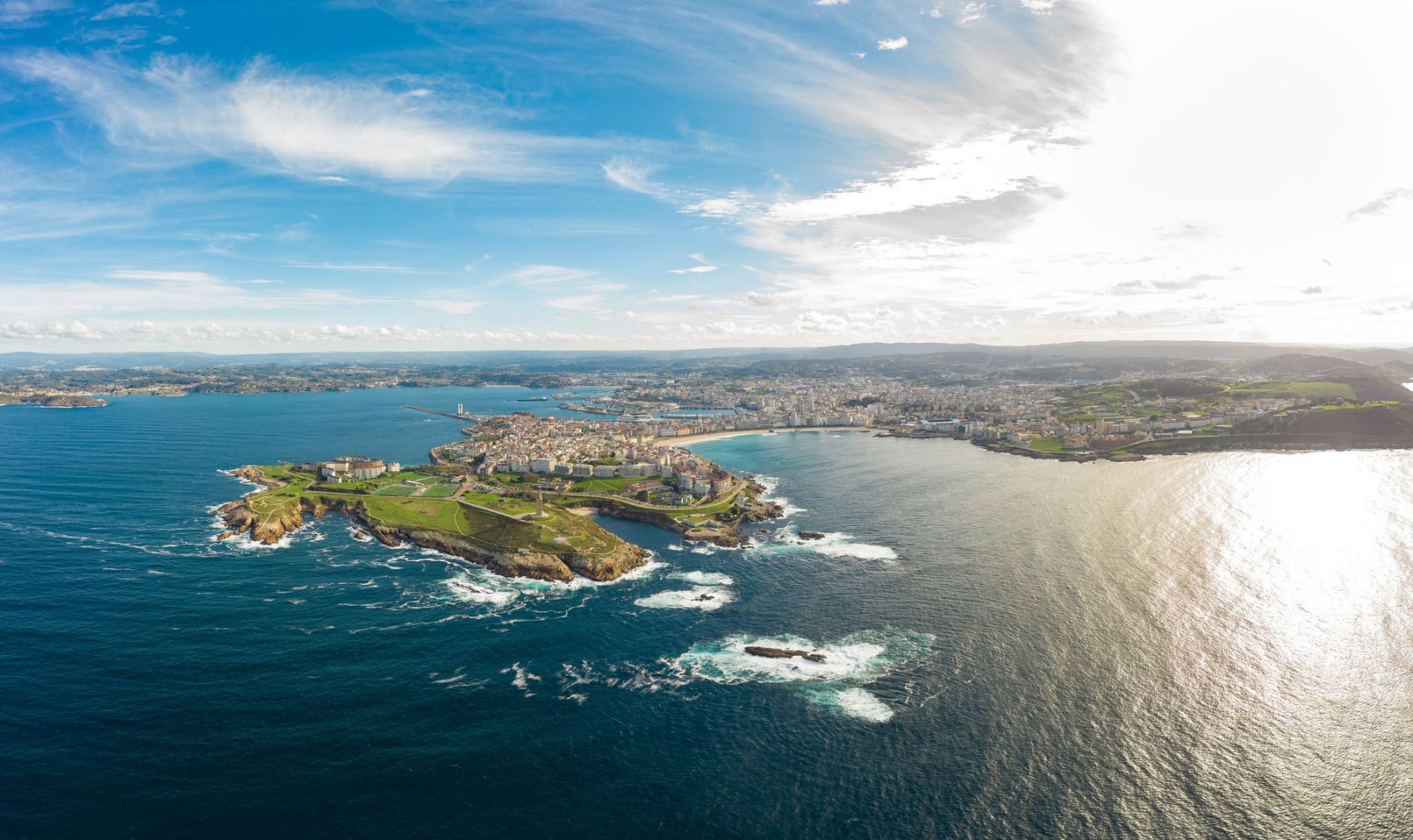
Podróżnicy odnajdują w La Coruña idealne miejsce do poczucia atmosfery atlantyckiego wybrzeża Hiszpanii, gdzie nowoczesne promenady spotykają się z historycznymi zabytkami i przytulnymi plażami. Miasto słynie z najstarszej działającej rzymskiej latarni morskiej na świecie – Wieży Herkulesa, zbudowanej prawie 2000 lat temu, która wciąż wskazuje drogę statkom. Można tu spacerować jedną z najdłuższych promenad w Europie, podziwiając oceaniczne widoki i świeży wiatr.
W La Coruña goście odkrywają bogatą galicyjską kulturę kulinarną z owocami morza, które serwowane są w tradycyjnych barach tapas oraz nowoczesnych restauracjach. Lokalne targi zachwycają świeżymi produktami, a życie kulturalne miasta wypełniają festiwale, wystawy i muzyka na żywo na ulicach. To miejsce oferuje podróżnym unikalne połączenie historycznej głębi, morskich krajobrazów i ciepłej hiszpańskiej atmosfery, pozostawiając po podróży poczucie lekkości i inspiracji.

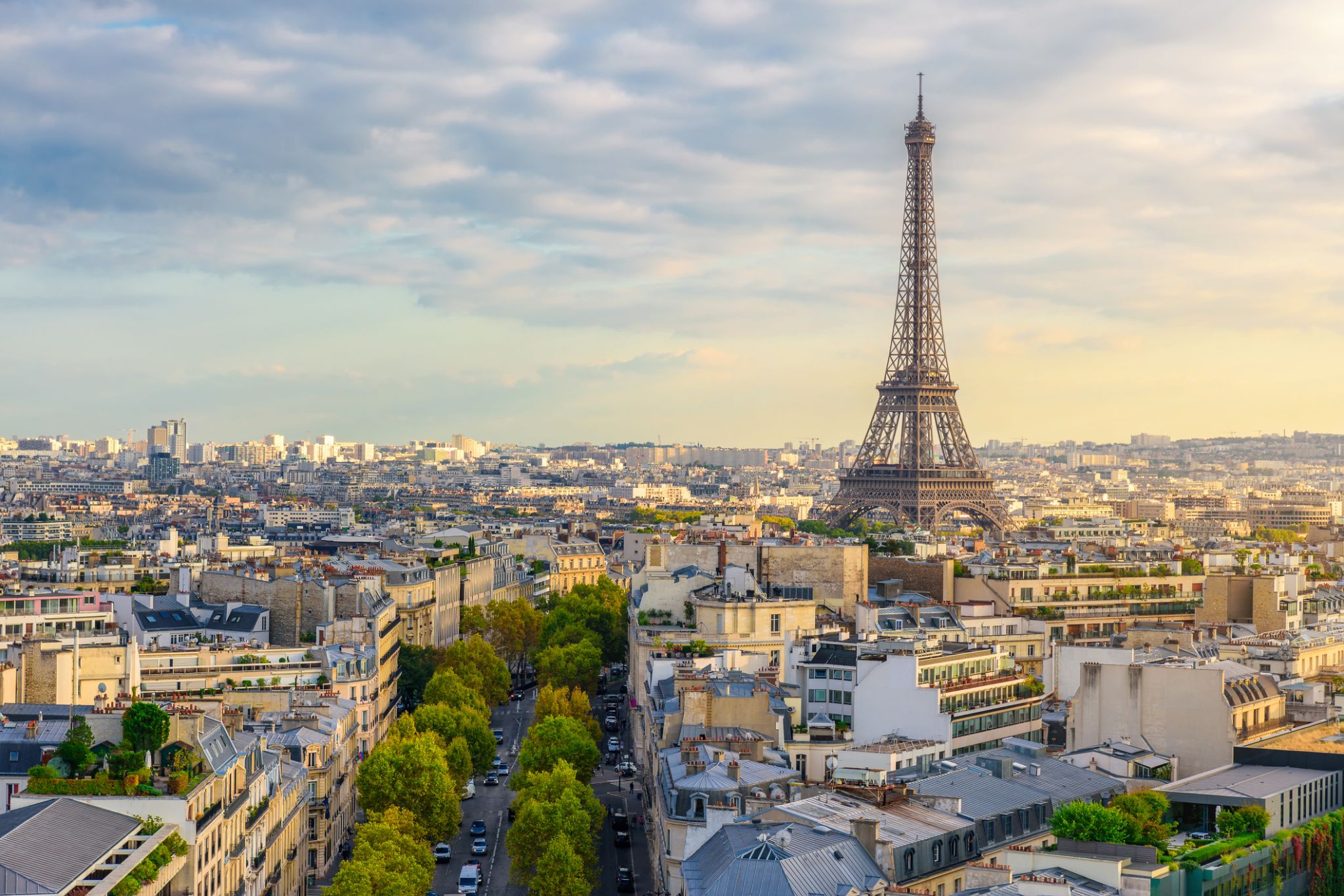
the capital of France, on the Seine River; population 2,203,817 (2006). Paris was held by the Romans, who called it Lutetia, and by the Franks, and was established as the capital in 987 under Hugh Capet. It was organized into three parts—the Île de la Cité (an island in the Seine), the Right Bank, and the Left Bank—during the reign of Philippe-Auguste 1180–1223. The city's neoclassical architecture dates from the modernization of the Napoleonic era, which continued under Napoleon III, when the bridges and boulevards of the modern city were built.